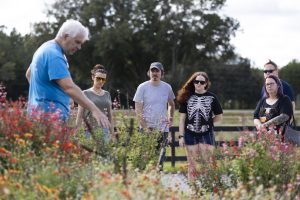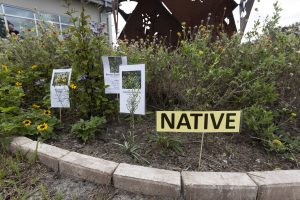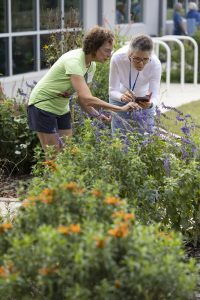Have you ever heard of “the third place?” It’s a concept introduced by sociologist Ray Oldenburg in his 1999 book, “The Great Good Place. ” In the book, Oldenburg writes about the need for a space beyond home (the first place) and work (the second place) where people can relax, socialize, and connect with their surroundings. Third places are known for being easy to access, inclusive to all, and free from rigid social structures. They provide a cozy and inviting atmosphere where people can relax and socialize, away from their homes and workplaces. This idea of third places has gained importance in conversations about city planning, building communities, and improving overall well-being. Cities are increasingly focused on creating spaces that encourage social connections and foster a sense of belonging among their inhabitants. “The third place” is an anchor of society and essential for our prosperity and for building strong communities.
Now, let’s think about an unexpected third place – the garden. Gardens aren’t just about plants and flowers; they’re havens where social connections flourish amidst nature’s tranquility. Gardens offer a peaceful escape from the chaos of everyday life, fostering social interaction and community bonding. Whether you’re chatting with fellow gardeners or simply enjoying the beauty of your surroundings, gardens bring people together from all walks of life. They also provide a chance to connect with nature, promoting mindfulness and well-being. From gardening activities to community events, gardens cater to diverse interests and needs, making them versatile spaces for everyone to enjoy. Additionally, many gardens are maintained by volunteers or community groups, fostering a sense of ownership and pride among residents. At their core, gardens embody the essence of “the third place,” offering a blend of natural beauty, social interaction, and community engagement.
Think about your garden for a moment. Remember the people you’ve met and the friends you’ve made while working together. Remember the joy you felt when you all got your hands dirty preparing the soil and planting seeds. Gardens are more than just pretty places; they’re important spots where people from different backgrounds can gather, connect, and feel better surrounded by nature. So, the next time you walk into a garden, think of it as more than just a place with plants and flowers. It’s a friendly place where community grows and friendships bloom at “the third place.”
- The Third Place - April 11, 2024
- Tomato Tips: Keys to Success - February 29, 2024
- Camellia -The Rose of Winter - January 25, 2024



